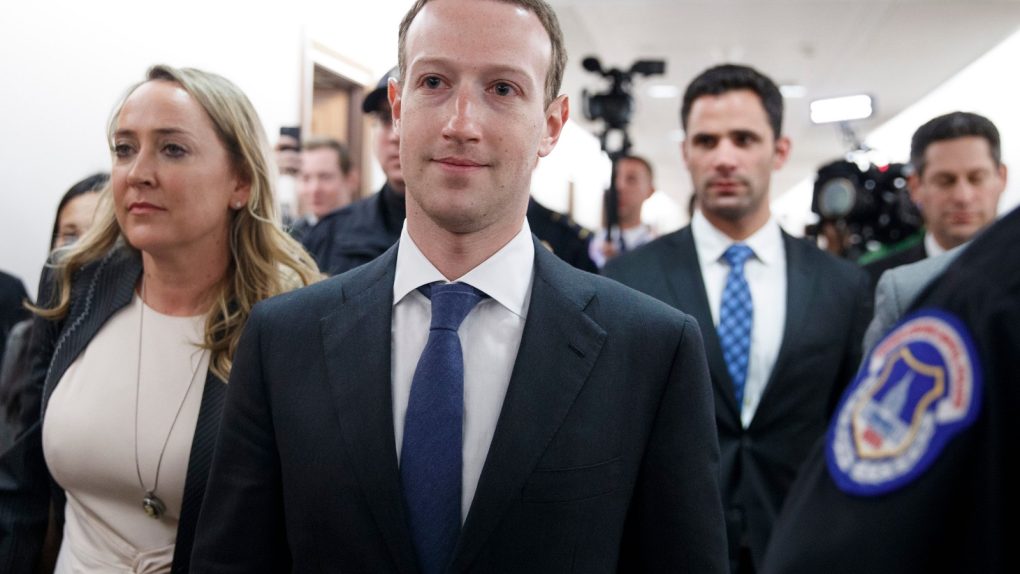Facebook’s brutal year of one bad news cycle after another has continued pretty much interrupted, with today offering the latest bit of fuel for the fire. Reporters have been combing through a previously sealed trove of internal emails released by the UK Parliament which has turned up scores of juicy tidbits.
For example: Mark Zuckerberg personally approved cutting off Vine from being able to use Facebook to help users find their friends; the seemingly cavalier attitude internally around Android call-scraping that landed Facebook in hot water; and naïveté early on about various Facebook-related risks. In one email from 2012, Zuckerberg talks about being generally skeptical “that there is as much data leak strategic risk as you think.”
About an hour ago, Zuckerberg took to his personal Facebook page to draft a response to all of this that boils down to, essentially: “You guys — we’ve actually done a lot of good, too, that you’re forgetting.”
From his post, which you can read in full here: “We launched the Facebook Platform in 2007 with the idea that more apps should be social. For example, your calendar should show your friends’ birthdays and your address book should have your friends’ photos. Many new companies and great experiences were built on this platform, but at the same time, some developers built shady apps that abused people’s data.
“In 2014, to prevent abusive apps, we announced that we were changing the entire platform to dramatically limit the data apps could access. This change meant that a lot of sketchy apps — like the quiz app that sold data to Cambridge Analytica — could no longer operate on our platform.” Some of the developers whose apps got kicked off Facebook ended up suing Facebook in an effort to get more access to peoples’ data, Zuckerberg continued. But he expresses confidence those legal challenges won’t amount to squat.
Then he brings up something happening in the background, while all of this was going on: Facebook’s tricky, but super-important, transition of emphasis from desktop to mobile several years ago.
“Running a development platform is expensive and we need to support it,” he writes. “Back when the main way people used Facebook was on computers, we supported the platform by showing ads next to developers’ apps on our website. But on mobile, Apple’s policies prevent us from letting apps run within Facebook and apps take the whole screen anyway, so we needed a new model to support this platform to let people log in and connect with other apps.”
Here, he delicately makes reference to some of the seemingly icky UK emails that have come out in which Facebook employees internally can be seen communicating with each other about charging for data access. “Like any organization,” writes Zuck, “we had a lot of internal discussion and people raised different ideas. Ultimately, we decided on a model where we continued to provide the developer platform for free and developers could choose to buy ads if they wanted. This model has worked well. Other ideas we considered but decided against included charging developers for usage of our platform, similar to how developers pay to use Amazon AWS or Google Cloud.
“To be clear, that’s different from selling people’s data. We’ve never sold anyone’s data.”
And it’s here that he comes back to his “hey, we’re actually the good guys” defense. The company, he says, doesn’t let just anyone develop on its platform.
“We’ve focused on preventing abusive apps for years, and that was the main purpose of this major platform change starting in 2014,” Zuckerberg’s note concludes. “In fact, this was the change required to prevent the situation with Cambridge Analytica. While we made this change several years ago, if we had only done it a year sooner we could have prevented that situation completely.
“I understand there is a lot of scrutiny on how we run our systems. That’s healthy given the vast number of people who use our services around the world, and it is right that we are constantly asked to explain what we do. But it’s also important that the coverage of what we do — including the explanation of these internal documents — doesn’t misrepresent our actions or motives. This was an important change to protect our community, and it achieved its goal.”








